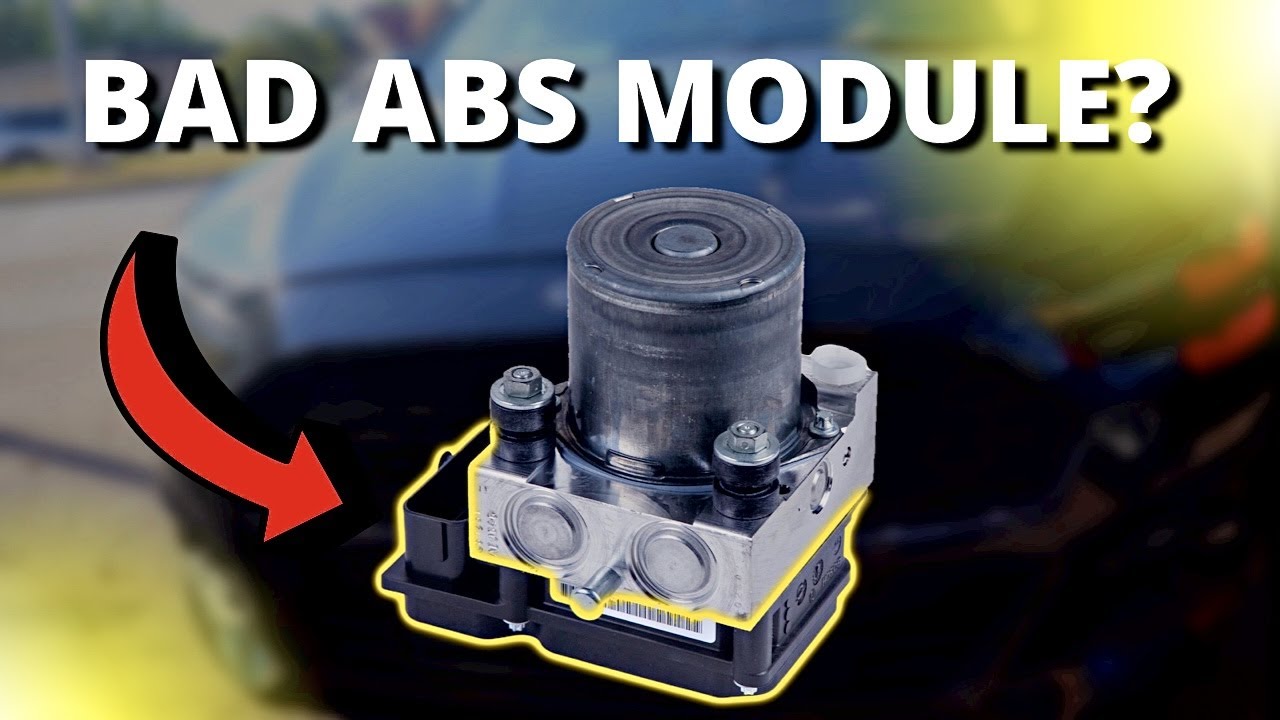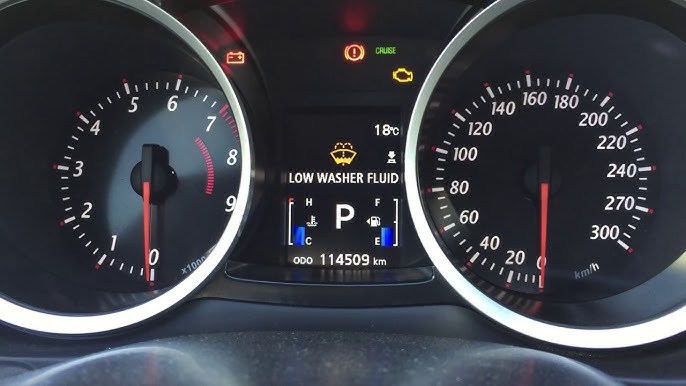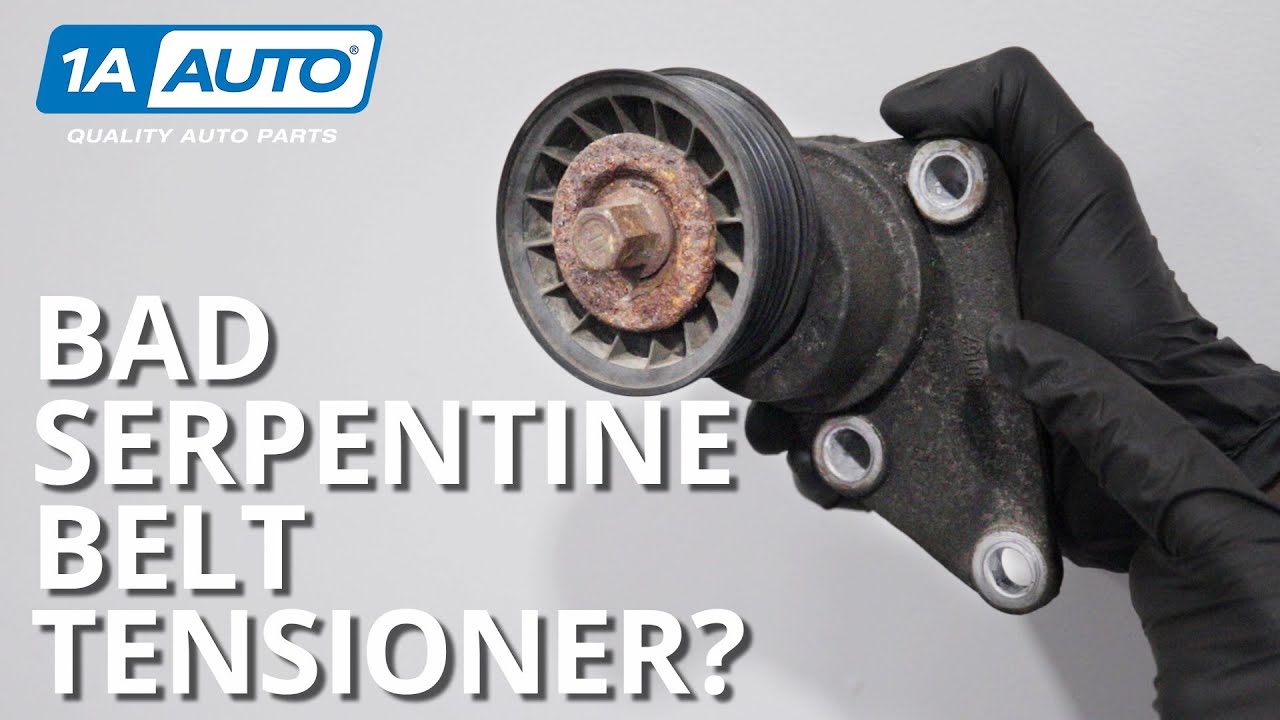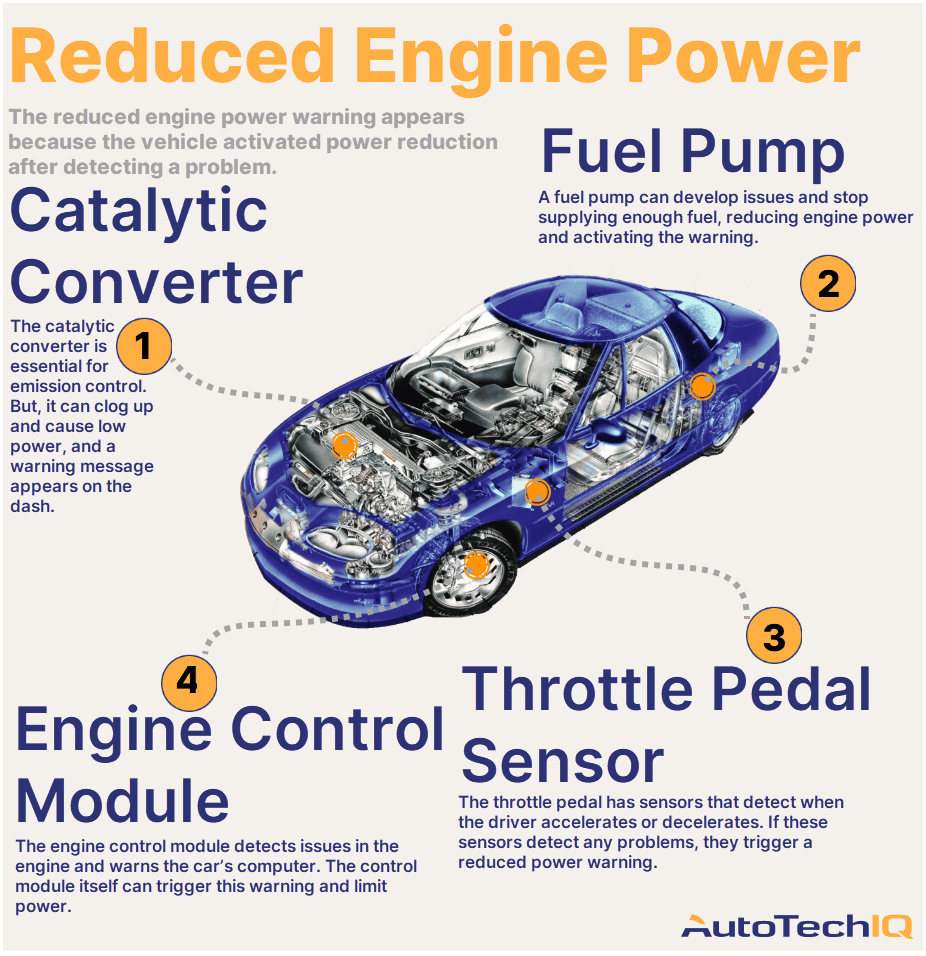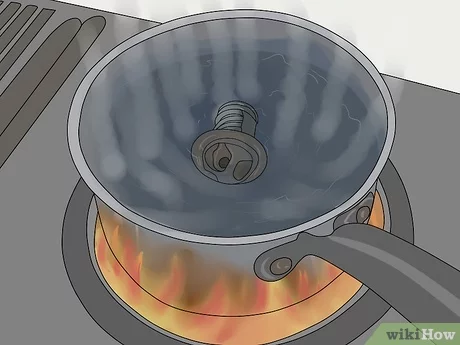What Happens When Your Abs Module Goes Bad
When an ABS module goes bad, braking efficiency is compromised, and the anti-lock function fails. This can lead to uncontrolled skidding during hard braking.
Understanding the implications of a failing ABS (Anti-lock Braking System) module is crucial for maintaining vehicle safety. The ABS module is integral to your car’s braking system, helping to prevent wheel lock-up during an emergency stop by modulating brake pressure.
A malfunctioning module may trigger the ABS warning light on your dashboard, potentially increasing the stopping distance and affecting handling during braking. Early detection and repair are vital to ensure driver safety and maintain the reliability of your vehicle’s braking system. Regular maintenance and awareness of the signs of a failing ABS module can avoid dangerous situations on the road.
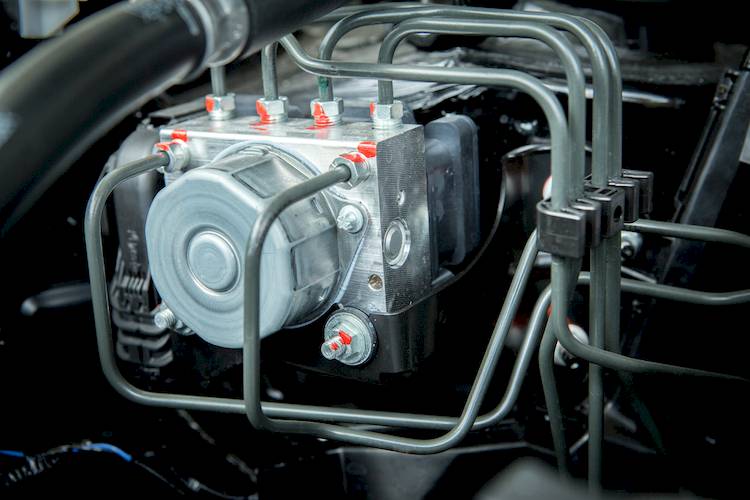
Credit: www.yourmechanic.com
Symptoms Of A Failing Abs Module
Understanding the symptoms of a failing ABS module is crucial for maintaining your vehicle’s safety. The Anti-lock Braking System (ABS) is an integral part of your car’s safety features. It helps prevent the wheels from locking up during braking, especially under harsh conditions. Let’s delve into the common signs that may indicate your ABS module is on the fritz.
Dashboard Warning Lights Illuminate
One of the first signs of an ABS issue is the illumination of warning lights on your dashboard. Typically, an ABS icon or the check engine light will appear. This indicates a diagnostic trouble code has been stored in the system, which requires immediate attention.
Brake Pedal Issues
A malfunctioning ABS module may cause unusual sensations in the brake pedal. You might experience a pulsating feeling or a sudden drop in the pedal’s resistance. It’s imperative to get this checked out, as brake pedal issues can directly affect your ability to stop the car safely.
Loss Of Anti-lock Functionality
Without a properly working ABS module, your vehicle’s anti-lock system won’t function. This loss of anti-lock functionality can lead to skidding or loss of control when you apply the brakes suddenly. If you notice the brakes locking up during abrupt stops, this is a telltale symptom that the ABS module may be failing.
Consequences Of Ignoring A Bad Abs Module
Ignoring a bad ABS module is risky. Your car’s brakes might not work well without it. Other problems can also happen. It’s important to know these problems so you can stay safe on the road.
Compromised Braking Effectiveness
The ABS module helps control your brakes. When it’s not working, your brakes might take longer to stop your car. This might make it hard to stop quickly. It can also cause your brake pads to wear out faster. You might hear strange noises when you brake. These are signs that you should check your ABS module.
Reduced Vehicle Control In Emergencies
ABS stands for Anti-lock Braking System. This system stops your wheels from locking up during hard braking. If your ABS module fails, your wheels could lock up. This can make it hard to steer your car, especially in emergencies. It’s like when you ride a bike and try to stop too fast. Your bike might skid. A bad ABS module can make your car do the same thing.
Potential Legal And Insurance Ramifications
- If you get into a car accident, the law might blame you if your ABS wasn’t working.
- Your insurance might not cover the damage if they find out your ABS module was bad before the accident.
- Sometimes, you might even get a ticket if you drive with a bad ABS module.
Fixing a bad ABS module is important to avoid these problems. It keeps you and others safe on the road.
Diagnostic Steps For Abs Module Problems
The Anti-lock Braking System (ABS) module, a critical safety component in vehicles, ensures that wheels don’t lock up during braking. Recognizing when this module malfunctions is essential. A proper diagnostic routine helps pinpoint issues. This task involves reading trouble codes, performing a physical inspection, and conducting electrical signal tests. Let’s go through these diagnostic steps to keep your driving experience safe.
Interpreting Diagnostic Trouble Codes (dtcs)
The first step in diagnosing ABS issues is to extract Diagnostic Trouble Codes. These codes provide clues about the malfunction. Use an OBD-II scanner to retrieve the DTCs from your vehicle’s computer. Each code corresponds to a specific issue:
- C – Chassis: Related to the ABS system.
- U – Network: Problems in the vehicle’s communication network.
Codes typically start with a ‘C’ and indicate the type of fault within the ABS. Codes must be cross-referenced with your vehicle’s service manual.
Physical Inspection Of The Module And Sensors
After interpreting the codes, visually inspect the ABS module and sensors:
- Look for corrosion or damage: The module should be free from visible damage.
- Check connections: Ensure all electrical connectors are secure.
- Examine sensor condition: Sensors should be clean and undamaged.
A compromised sensor or module can lead to ABS failure. Pay special attention to signs of wear or contamination.
Electrical Testing For Proper Signals
Following a visual check, test the electrical signals:
- Use a multimeter to verify voltage at the module.
- Test each sensor for correct signal output.
- Look for breaks or shorts in the wiring.
A consistent voltage and proper signal from each sensor are crucial. Deviations indicate electrical issues with the ABS module.
Overall, these steps are critical for diagnosing and addressing ABS module problems. Stay safe on the roads by ensuring your ABS system functions correctly.

Credit: www.carparts.com
Common Causes Of Abs Module Failure
Understanding the reasons behind ABS module failure is crucial for maintaining vehicle safety. The Anti-lock Braking System (ABS) is a core component responsible for preventing wheel lockup during emergency braking. However, it can fail due to various reasons, leading to compromised vehicle control and safety. Below, we explore the most common culprits of ABS malfunction.
Electrical Malfunctions
Electrical issues are top offenders in ABS module failure. They can stem from many smaller problems such as:
- Faulty wiring or connections corroded over time.
- Damaged sensors resulting from exposure to the elements.
- Blown fuses that cut power to the ABS module.
Regularly checking electrical components ensures early detection and repair of these issues.
Wear And Tear Over Time
Like all mechanical components, the ABS module is subject to normal wear and tear. Critical signs include:
| Sign | Implication |
|---|---|
| Unusual noises | Indicator of internal wear |
| Response delay | Worn-out valves affecting performance |
| Brake pedal issues | Compromised module-pedal communication |
Maintaining a service schedule can mitigate such wear-related issues.
Impacts And Physical Damage
The ABS module can fall victim to direct physical damage. Common scenarios include:
- Collisions that cause immediate harm to the ABS housing.
- Debris on roads striking sensitive parts of the wheel sensors.
- Off-road driving leading to severe impacts on the braking system.
Vehicle owners should conduct post-incident inspections to prevent unnoticed ABS damage.
Repair Or Replace: Addressing A Bad Abs Module
Driving safety takes a hit when your ABS module fails. Your vehicle’s ability to prevent wheel lockup during braking is crucial. It’s decision time. Do you repair or replace that malfunctioning module? Let’s explore the circumstances and considerations for the best course of action.
When To Repair The Existing Module
Assess the current ABS module condition. A repair might be possible. Look for these signs:
- Intermittent issues: Occasional ABS warning lights might just need a reset or a simple fix.
- Dirty sensors: Sometimes cleaning or replacing sensors restores functionality.
- Solenoid problems: Individual solenoids can often be repaired without replacing the entire module.
Repair is a cost-effective solution. Yet, it’s not always an option.
Considering The Cost-benefit Of Replacement
Repair costs might exceed the module’s worth. Here’s when replacement wins:
- Severe damage: Corrosion or burnt components often merit a full replacement.
- Outdated technology: Newer modules improve safety and performance.
- Warranty benefits: A new module comes with peace of mind, thanks to warranty coverage.
Analyze the long-term value. New modules can save future costs and stress.
The Importance Of Professional Installation
Whether you repair or replace, trust experts with the installation. Precision is key. Here’s why:
- Expertise matters: Professionals have the right tools and know-how.
- Diagnosis: They ensure other issues don’t mimic a bad ABS module.
- Calibration: Proper setup ensures the ABS functions correctly after service.
Ensure safety and proper functionality. Go for professional installation.
Preventive Measures And Maintenance Tips
Keeping your ABS module in prime condition ensures safety on the road. The ABS module plays a crucial role in vehicle safety, controlling the braking system to prevent skidding. Proper maintenance and preventive measures can avert costly repairs. Here’s how:
H2regular Brake System Checkups/h2
Maintaining your brakes is crucial for ABS module longevity. Opt for routine inspections to detect any irregularities early.
- Check brake pads and rotors for wear.
- Ensure brake fluid levels are adequate.
- Scan for error codes that could indicate ABS faults.
H2addressing Issues Promptly/h2
Lag in addressing brake issues can lead to ABS malfunctions. Act fast on these signals:
- Unusual braking noises or responses.
- ABS warning lights on dashboard.
- Braking vibrations or pulsations.
H2keeping Electrical Components Dry And Clean/h2
Moisture and filth can damage the ABS module. Keep it dry and clean:
- Avoid water near electronic components.
- Clean wiring harnesses and connectors regularly.
- Ensure seals and gaskets protect against moisture.

Credit: www.youtube.com
Frequently Asked Questions Of What Happens When Your Abs Module Goes Bad
What Are Symptoms Of A Bad Abs Module?
A faulty ABS module may present symptoms like illuminated ABS light on the dashboard, unresponsive brake pedals, or loss of anti-lock functionality. Additionally, you might notice erratic speedometer readings or the brakes locking up, indicating that the ABS system is malfunctioning.
Can Abs Module Failure Affect Car Performance?
Yes, ABS module failure can indirectly affect car performance. While primary engine functions aren’t impacted, braking stability and effectiveness are compromised. The vehicle may also fail safety inspections if the ABS is not functioning correctly.
How Often Should Abs Modules Be Replaced?
ABS modules are not typically subject to regular replacement as they’re designed to last the vehicle’s lifespan. However, they should be inspected if you experience any symptoms of failure, and replaced if a certified mechanic deems it necessary.
Is Driving Safe With A Malfunctioning Abs Module?
Driving with a malfunctioning ABS module can be risky as it disables the anti-lock braking system. This could lead to uncontrolled wheel lockup during sudden braking, increasing the chances of a skid or collision, especially in slippery conditions.
Conclusion
Understanding the signs of a failing ABS module is crucial for vehicle safety. Regular checks and timely maintenance can prevent bigger issues. Ignoring the symptoms may lead to compromised braking efficiency or even costly repairs. Keep your ABS in check to ensure a safe journey every time you hit the road.

